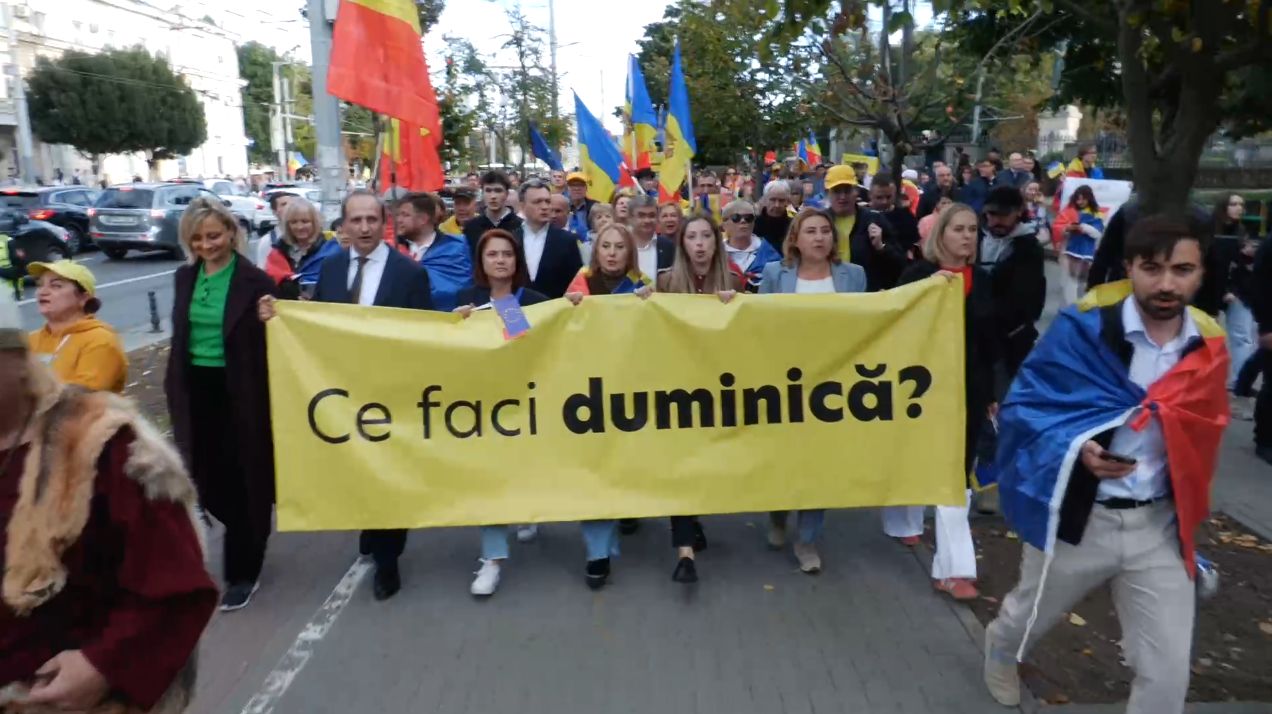Moldova’s authorities neutralized Russia’s $180 million election interference operation by arresting vote-buying coordinators and freezing bank accounts—then watched pro-EU turnout surge while paid voters stayed home.
The result: Moldova’s ruling Party of Action and Solidarity (PAS) secured an absolute majority in the 28 September parliamentary elections.
The result gives President Maia Sandu a renewed mandate to push forward on Moldova’s European path, despite Moscow’s unprecedented efforts to derail it.
Sandu’s comeback despite grim prognoses
Pre-election forecasts were uncertain, with polls suggesting declining support for Sandu’s PAS after years of economic hardship, corruption scandals, and energy crises.
Between 25% and 40% of Moldovans remained undecided, making this the largest pool of swing voters in the country’s history. Carnegie noted they represented “the single largest party.”
The pro-EU forces banked on mobilizing them. Moldova’s September elections were framed not as a contest of programs, but as an existential choice: Europe or Putin. President Maia Sandu and her Party of Action and Solidarity (PAS) leaned into this narrative unusually harshly.

In a country battered by inflation, energy shocks, and the corrosive effects of hybrid warfare, positive agendas alone couldn’t mobilize the electorate.
The main campaign slogan was “There won’t be a second round,” and it was less about electoral mechanics and more about existential urgency—a message that if Moldovans didn’t act now, the European path could vanish under Russian pressure.
The binary choice worked. Political analyst Iulian Groza noted higher turnout favored PAS, and turnout rose from 48% in 2021 to 51.9%. Fence-sitters who might have stayed home chose sides.
PAS achieved 50.2% of the vote, translating into 55 seats in Moldova’s 101-seat parliament. While fewer than the 61 seats it previously held, this is still enough for a stable majority.
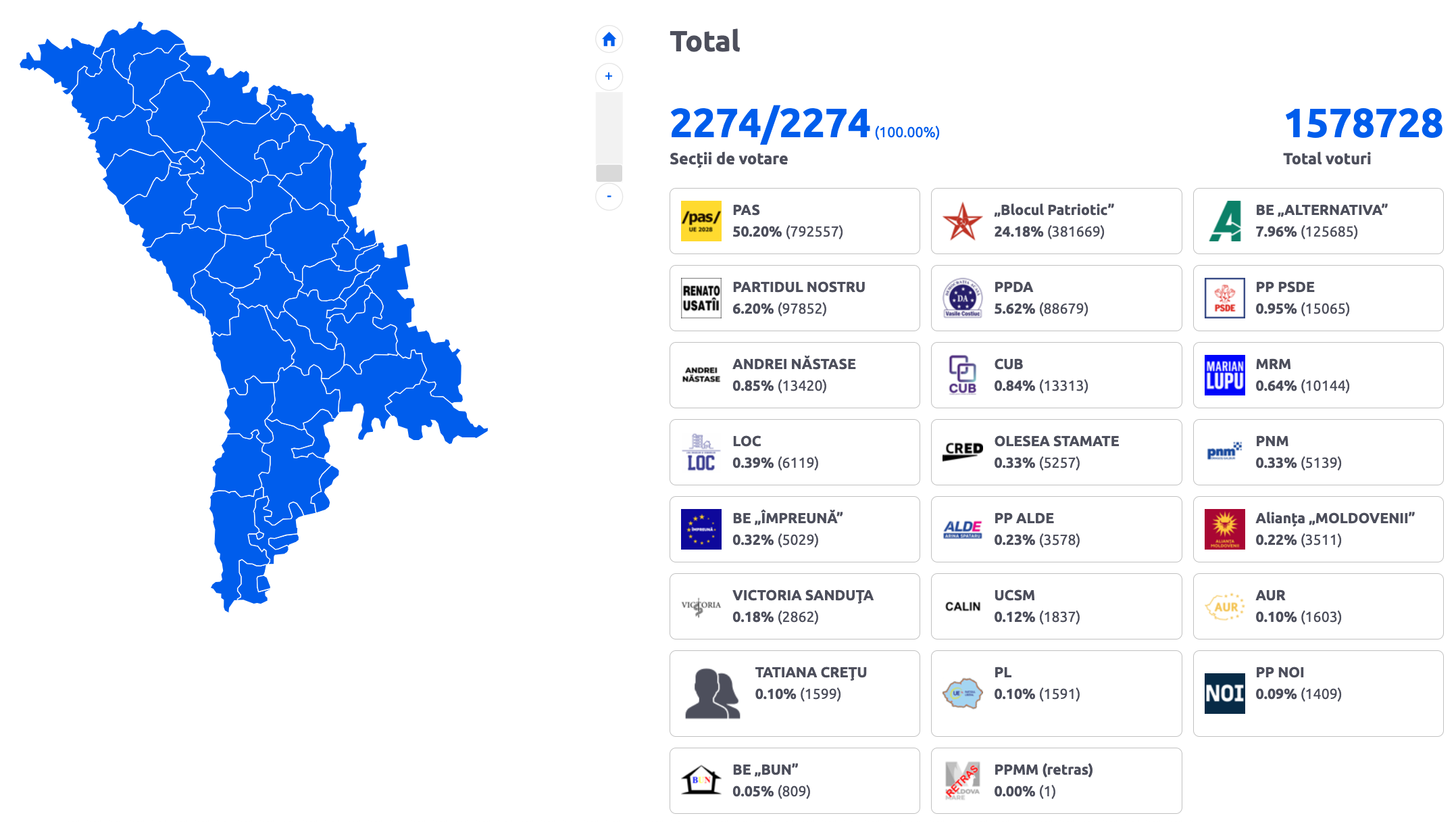
Alternativa bloc secures seats, too
Another pro-European force, the Alternativa bloc, secured eight seats in the new parliament, formally declaring its support for EU integration.
Yet its roots lie deep in Moldova’s pro-Russian political networks. The bloc is closely tied to Chișinău mayor Ion Ceban — himself a former Socialist Party member — and to ex-presidential candidate Alexandru Stoianoglo, Moldova’s former prosecutor general, who was openly backed by Dodon’s Socialists during the 2024 elections.
The irony is hard to miss: a politician promising “European Moldova” who’s been far more visible in Moscow than Brussels. Ceban has signed partnership deals with Russian authorities even as the West isolated the Kremlin over Ukraine, reports Cotidianul.md.
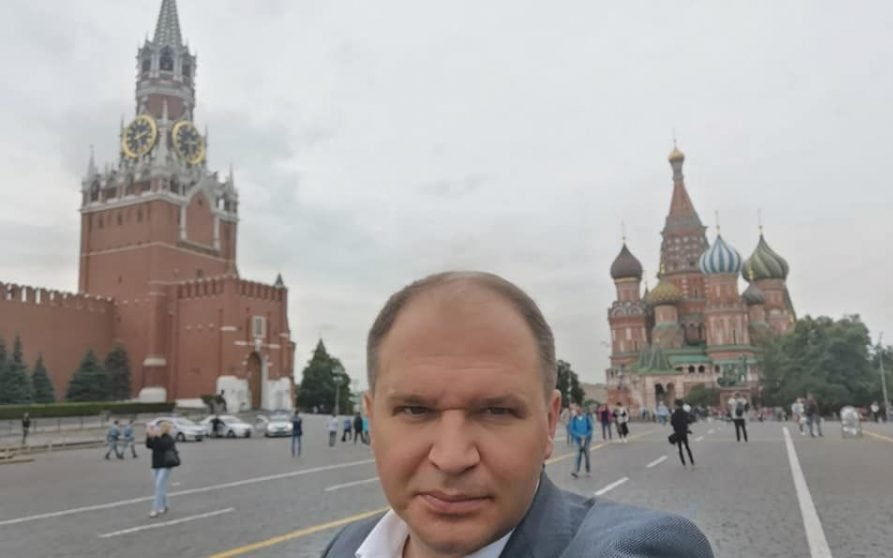
Despite this legacy, Alternativa has sought to rebrand itself as a centrist, pro-European project, positioning as a counterweight to Sandu’s PAS while at the same time signaling readiness to enter a coalition with it. This dual identity raises questions among analysts about whether the bloc represents genuine pro-European politics or a tactical reshaping of Moldova’s pro-Russian elite.
On the other side, the Kremlin-backed Patriotic Bloc — composed of the Socialist Party of Igor Dodon, the Communist Party of Vladimir Voronin, and the “Future of Moldova” party led by ex-premier Vasile Tarlev — secured 26 seats with 24.17%.
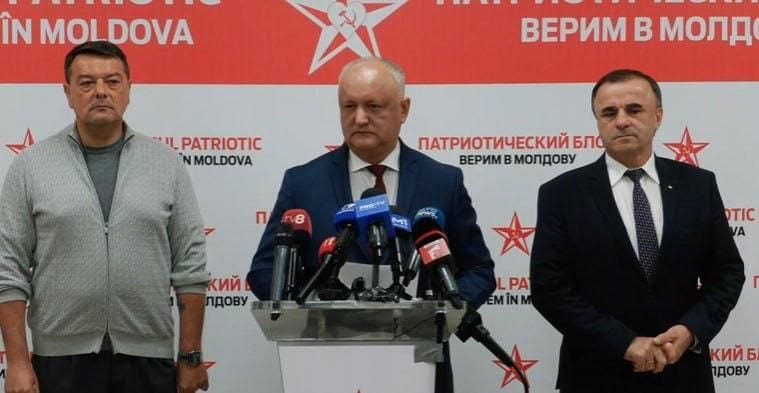
For Sandu, the result is a personal and political victory. At a press conference on Monday, she emphasized the historic significance.
“The results of these elections are not a win for one party, but for the country. I am glad that our path toward the EU is guaranteed. I wanted Moldovans to make this choice themselves, for Moldova to remain free and democratic,” said Sandu.
Moldova cracks down on fugitive pro-Russian oligarch
Sandu’s victory was also the product of a deliberate rebalancing of Moldova’s political playing field.
Four parties linked to fugitive oligarch Ilan Shor were struck off before ballots were even printed.
The legal foundation was solid. Moldova’s Central Election Commission rejected the Victory bloc in July, citing “illegal foreign funding and election law violations.” The bloc had held its founding congress in Moscow with Russian logistical support.
But the real issue was constitutional. Moldova’s Constitutional Court had already declared Shor’s party “unconstitutional” in June 2023, and the law prohibits creating new parties from banned ones. Victory was exactly that—four Shor-linked parties (Revival, Chance, The Power of Alternative and the Salvation of Moldova, Victory) trying to circumvent the ban through a coalition.
But Shor’s real weapon wasn’t these banned parties—it was cash. Moldovan authorities documented over 138,000 people receiving money through Russia’s Promsvyazbank to vote for specific candidates.
That’s roughly 10% of the entire electorate getting paid to vote.
The scheme worked like a pyramid: coordinators recruited voters, handed out cash payments, and told them exactly which candidates to support. Rural areas and Gagauzia saw the deepest penetration, where a few hundred dollars goes much further than in Chișinău.
Authorities spent months hunting down the coordinators. They arrested dozens before election day and threatened others with prosecution.
The results showed up in the turnout numbers: pro-Russian regions dropped 3-4% compared to previous elections. In Gagauzia—the network’s stronghold—turnout fell from 51.9% in 2024 to 45.3%.
When the people distributing money disappear, paid voters stay home. What remained were genuine voters making authentic choices.
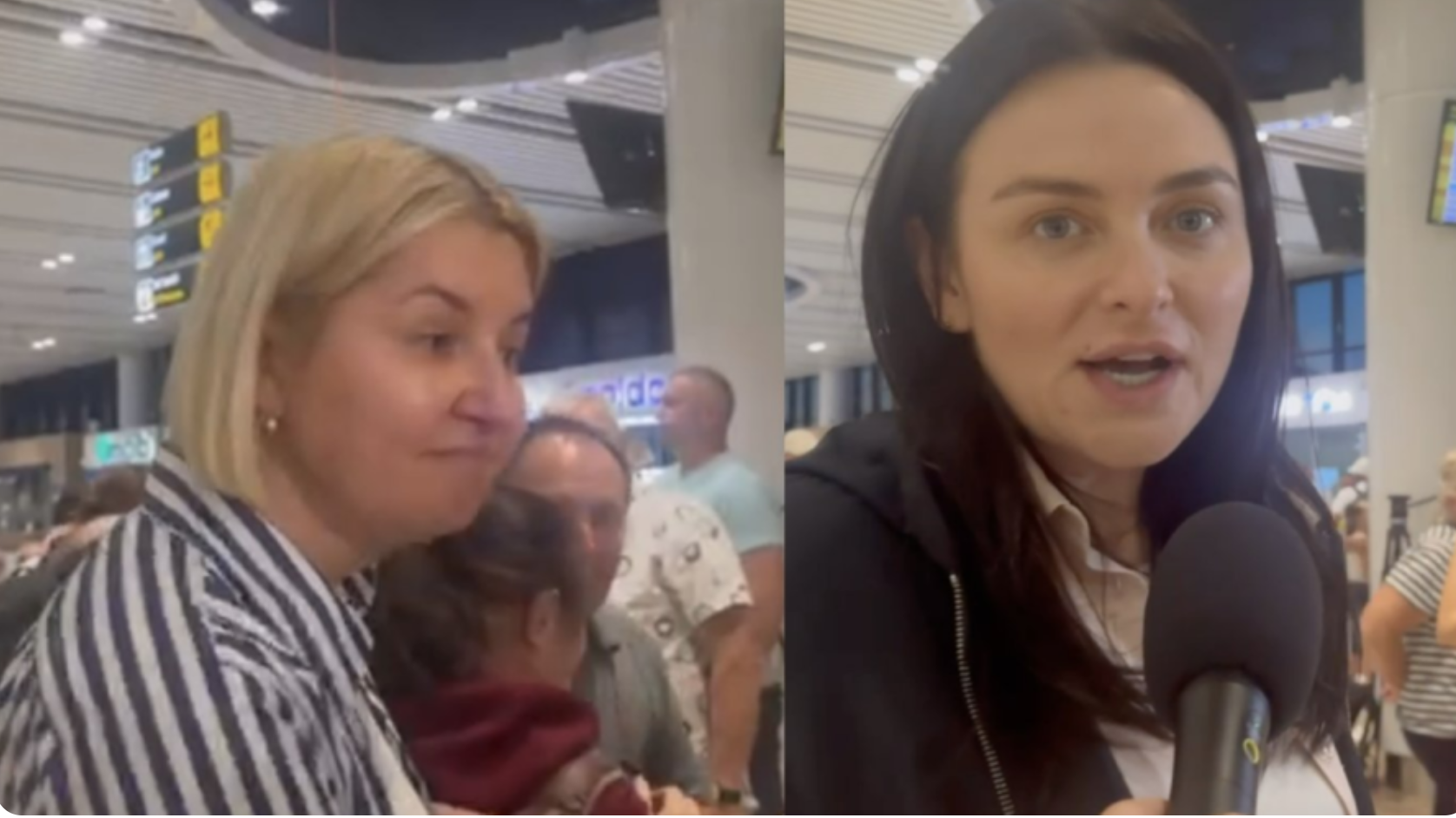
But Shor’s network wasn’t the only target. Other pro-Russian parties faced similar pressure as authorities worked to eliminate Russian money from the election.
The biggest casualty was Irina Vlah, former governor of Gagauzia and runner-up in the 2024 presidential race. Her Heart of Moldova party had joined the main opposition coalition—the Patriotic Bloc—giving anti-government forces their most credible candidate outside of Igor Dodon.
Canada had sanctioned her in August for Russian interference activities. Moldova froze her bank accounts in September. Lithuania, Poland, Latvia, and Estonia banned her from entering their countries, all citing the same reason: helping Russia interfere with the elections.
The party ban followed a court ruling restricting Heart of Moldova’s activities for 12 months. The allegations? Money laundering, illicit financing, and voter bribery. The same day, authorities struck Victoria Furtună’s Great Moldova party for similar reasons—undeclared foreign funding and ties to the banned Shor network.
The electoral impact was immediate. The Patriotic Bloc had 24 hours to rewrite their candidate lists and reprint ballots on Saturday night. No time to reorganize, no time to prepare voters for the changes.
The message was clear: documented Russian money meant disqualification.
The government curbed the financial muscle of pro-Russian forces, while simultaneously benefiting from the visibility and leverage of administrative resources.
Disruptions fail to derail voting
Moscow’s hybrid playbook: from cash to crypto and TikTok
Traditionally pro-Russian voters from Transnistria faced significant obstacles after authorities relocated several polling stations days before the election, citing security concerns.
Opposition parties characterized these moves as voter suppression, while the government maintained they were necessary security measures amid widespread cyberattacks and bomb threats.
Meanwhile, Moldova’s traditionally pro-EU diaspora encountered coordinated disruption attempts. Fake bomb threats simultaneously hit polling stations in Romania, Belgium, Italy, Spain, and the United States. Romanian authorities investigated and confirmed all threats were false. Voting resumed after temporary evacuations and security sweeps.
The same night, over 16 million cyberattacks targeted Moldovan government websites, though officials said all were neutralized without affecting the vote count.
Despite these disruptions—which Moldovan authorities attributed to Russian interference—voter turnout reached 52%, higher than previous parliamentary elections.
The campaign underscored the intensity of Russia’s hybrid warfare against Moldova. Authorities arrested dozens of individuals accused of being trained to incite mass unrest before election day.
Investigations revealed direct links to the so-called Shor network, connected to fugitive oligarch Ilan Shor, wanted for fraud and hiding in Russia.
Independent journalists, including BBC, documented how the network operated with Russian money: bribing voters directly, planting disinformation, and flooding social media. Kremlin tactics have evolved since earlier elections.
Instead of importing consultants or deploying Russian bloggers, Moscow now trains Moldovans themselves to produce propaganda content.
Disinformation was relentless:
- Fakes about Moldovan soldiers allegedly fighting in Ukraine were debunked by authorities.
- Viral videos on TikTok mocked Ukrainian-Moldovan cooperation, even portraying soldiers as LEGO figures.
- Telegram channels amplified claims of “rigged elections” weeks before voting day.
Analyst Jakob Hedenskog (SCEEUS) estimated Russia spent around $180 million — over 1% of Moldova’s GDP — to influence the vote, increasingly relying on cryptocurrencies to conceal money flows.
Protests, pressure, and the Kremlin’s silence
Before the vote count was complete, Dodon declared victory, arguing that PAS had not won a majority of ballots. He and Tarlev called their supporters to rally outside Moldova’s electoral commission. One leader of the Patriotic Bloc urged crowds to “defend our victory” at parliament.
But the opposition’s attempt to pre-empt the result fizzled. Other opposition parties refused to endorse Dodon’s claim. International observers noted no systemic irregularities, and PAS crossed the threshold for an outright majority.
Moscow’s official response was muted. Kremlin spokesman Dmitry Peskov said Moldovans should “first sort things out themselves,” while lamenting that only two polling stations were opened in Russia, disenfranchising “hundreds of thousands” of Moldovans. In reality, just over 4,000 people voted in Russia.
Europe hails Moldova’s choice
The election result was greeted with rare unanimity across Europe: Ursula von der Leyen, European Commission President, António Costa, European Council President, Kaja Kallas, EU foreign policy chief, Emmanuel Macron, French President, Volodymyr Zelenskyy, President of Ukraine and other.
“I am glad to congratulate Maia on this very important victory and to wish her success. These elections have shown that Russian destabilization efforts are losing, while a European Moldova is winning. Russian subversive activities, constant disinformation – none of this has worked. What matters is that Moldova was effective in defending itself against threats together with all those who provided support,” the Ukrainian leader wrote.
How anti-Ukraine populists snuck into parliament
One of the biggest surprises was the entry of Democracy at Home led by nationalist Vasile Costiuc. The party, linked to Romania’s far-right AUR movement, unexpectedly cleared the 5% threshold to win six seats, using Tik-Tok in their promotion.
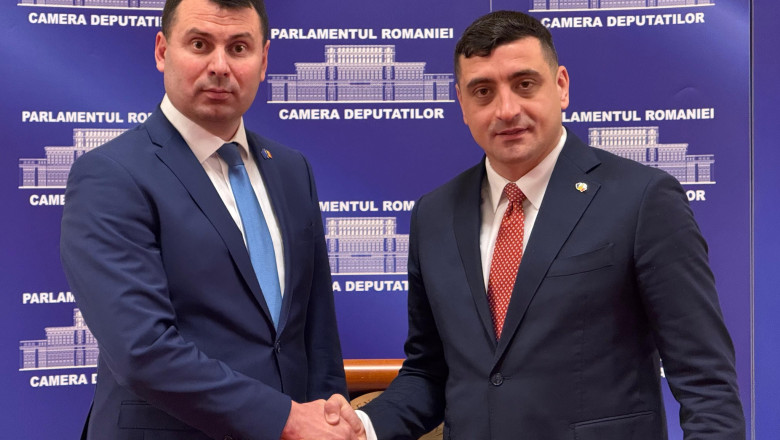
Costiuc, as well as his Romanian patron George Simion, openly advocates unification with Romania and embraces “Trumpist” rhetoric skeptical of unconditional support for Ukraine.
While small in numbers, the party has mastered TikTok algorithms, using provocative stunts and clashes with police to boost visibility.
Despite the ruling party securing a majority, Costiuc’s disruptive style could complicate coalition-building and provide Moscow with indirect leverage.
Why it matters: Moldova, Ukraine, and Europe
Moldova’s elections were not a local affair. They were a battlefield in Russia’s wider war against Europe — fought not only with drones breaching NATO skies but also with disinformation, money, and political proxies seeking to erode democratic resolve.
Had the Kremlin-backed bloc prevailed, Moldova risked sliding toward a “Belarus scenario” — a Russian outpost on NATO’s flank — or at best a “Hungarian scenario,” where euroskeptic spoilers undermine EU unity from within. Either outcome would have directly affected Ukraine, whose European ambitions are intertwined with Moldova’s trajectory.
For now, Sandu’s victory secures continuity: Moldova’s EU accession talks, launched in 2024, can advance, and Kyiv retains a critical partner on its western border. However Moscow is unlikely to give up.





